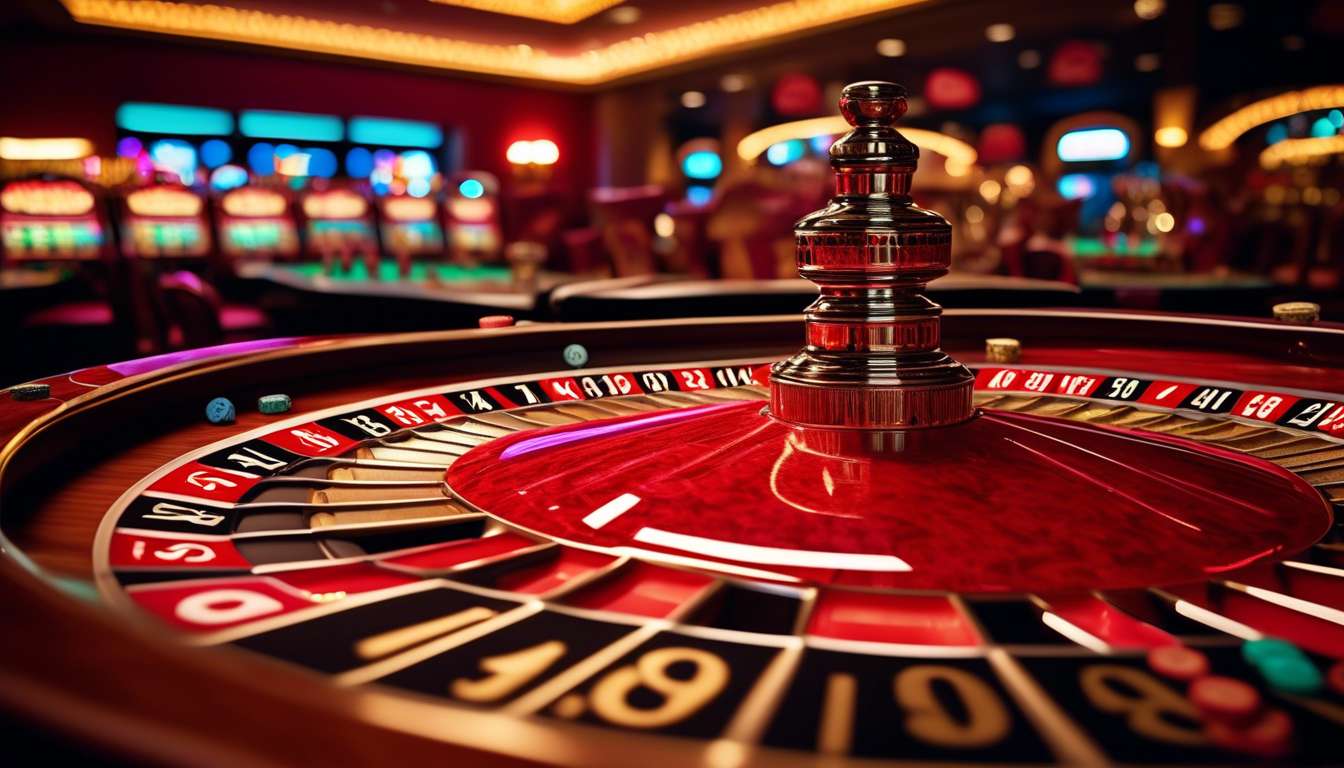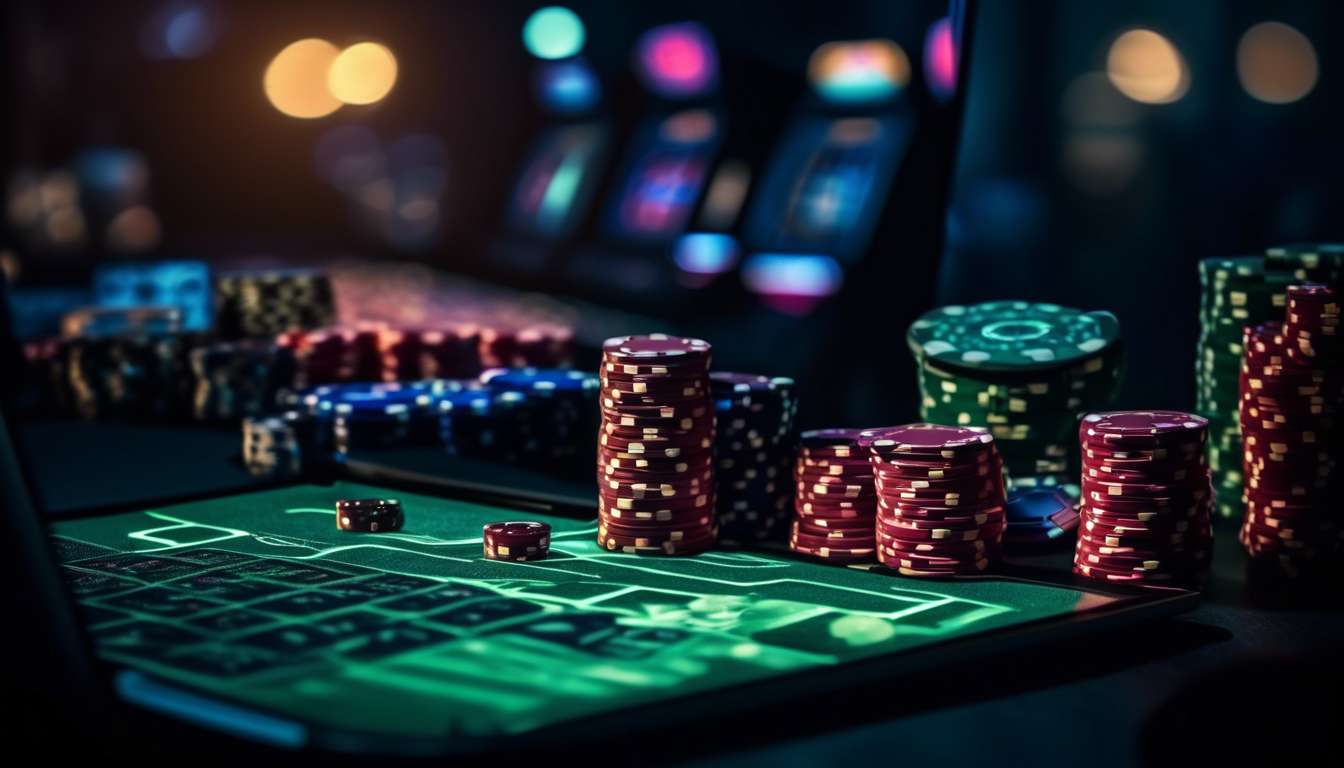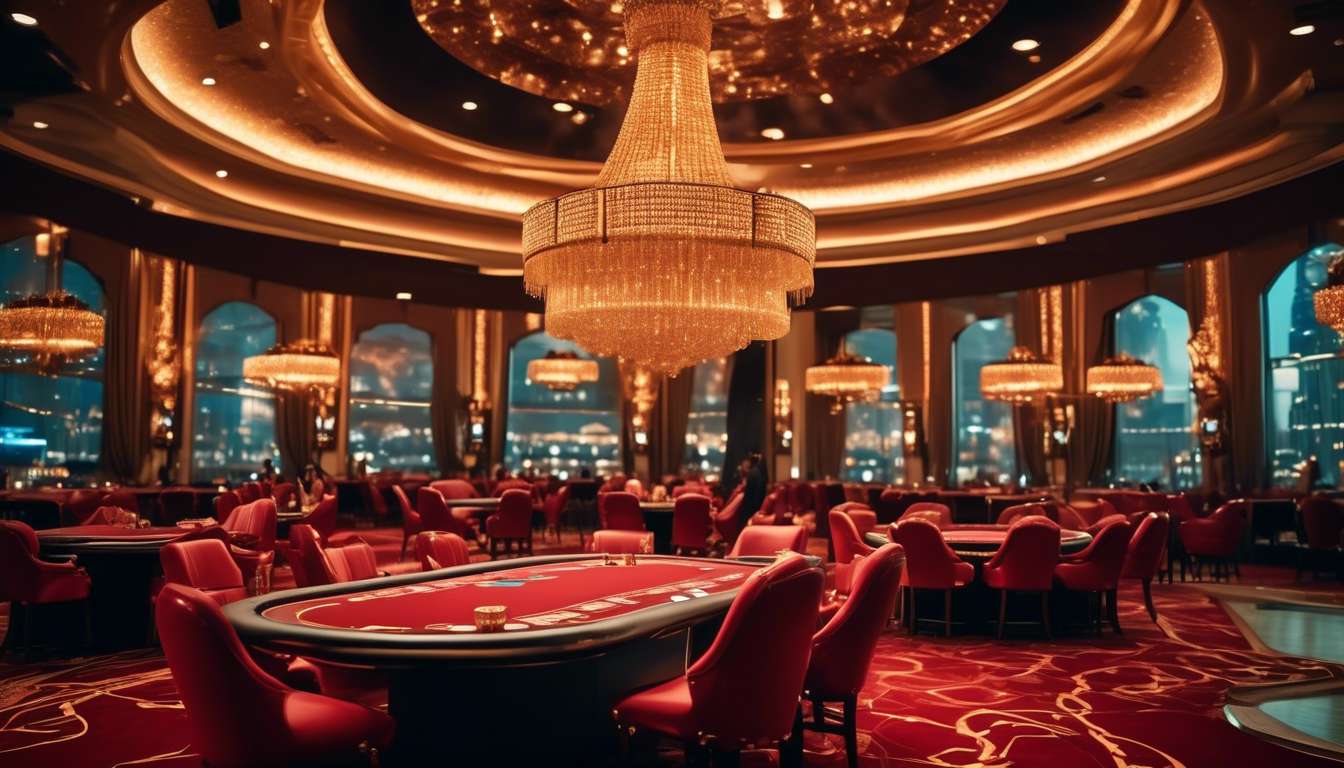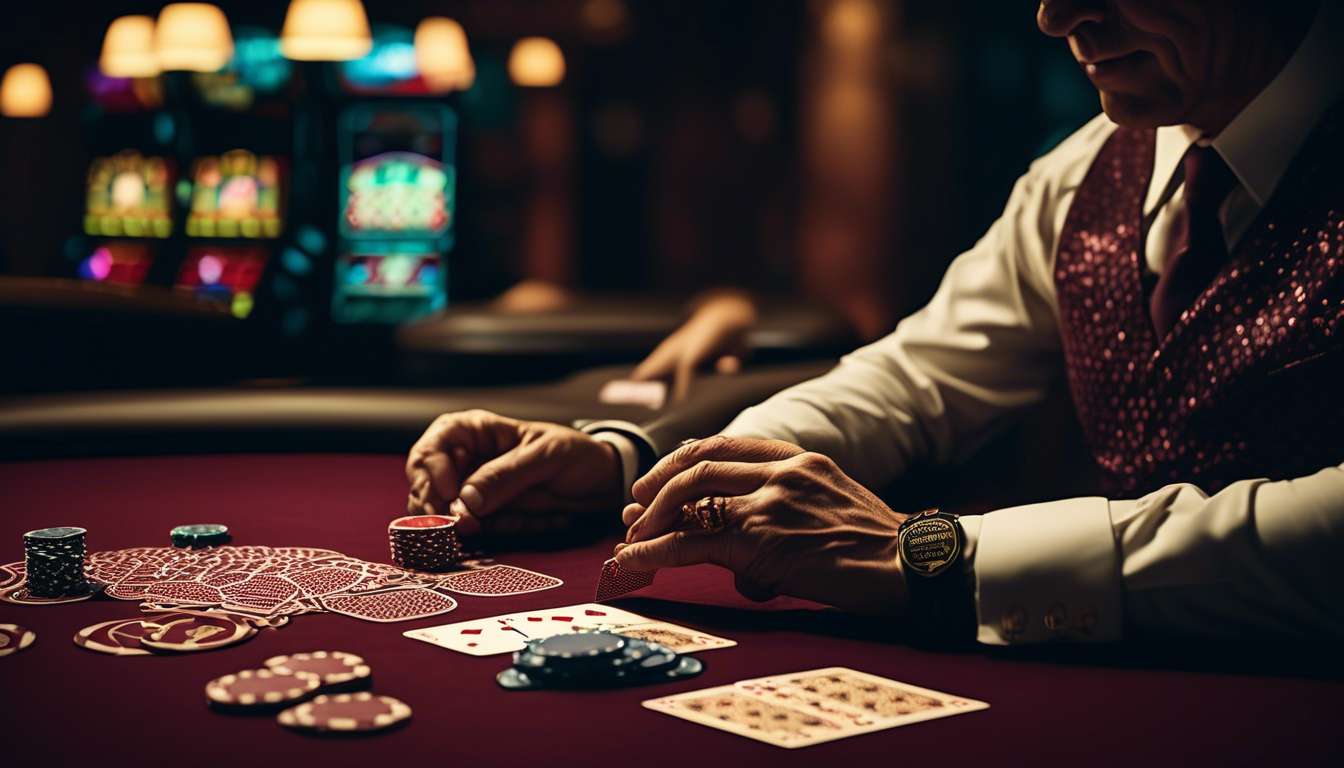When we gather around the roulette table, the air is thick with anticipation and the thrill of possibility. Roulette, a game of chance that has captivated players for centuries, offers more than just the spin of a wheel and the clatter of the ball.
We might think we know all there is to know about this classic casino staple, yet there are curiosities and lesser-known facts that add layers of intrigue to our experience. As we delve into the rich history and quirky tales surrounding roulette, we uncover stories that challenge what we thought we knew.
Interesting Facts:
- Roulette is often called "the devil’s game" due to the sum of all the numbers on the wheel adding up to 666.
- There’s a French connection to its origins, steeped in mathematics and probability.
Join us as we explore the unexpected and intriguing facets of the roulette game that continue to fascinate us.
The Origins of Roulette
Roulette’s origins date back to 18th century France, where it evolved from earlier wheel-based games. We can almost imagine ourselves gathered around a table in a bustling French casino, sharing in the thrill of the spinning wheel. Roulette quickly became a favorite pastime, its allure partly due to the fascinating blend of mathematics and luck.
As we join in this time-honored tradition, we recognize the role mathematics plays in determining odds and payouts, creating a compelling challenge for enthusiasts who seek to master it.
Superstitions add another layer of intrigue. We’ve all heard whispers of lucky numbers or rituals that players swear by, despite mathematics suggesting otherwise. These beliefs create a sense of belonging among players, as we share stories and superstitions, forming connections over the unpredictability of the game.
Roulette isn’t just about numbers; it’s about the shared experience, the camaraderie of players gathered around a wheel, hoping for that magical moment when luck and numbers align.
The Infamous “Devil’s Game” Moniker
Many of us have heard roulette referred to as the "Devil’s Game," a nickname that captures both its mysterious allure and the sum of its numbers. When we add up all the numbers on a roulette wheel, from 1 to 36, they total 666. This number has long been associated with the devil, adding a layer of intrigue and superstition to the game.
As players, we find ourselves drawn to this blend of mathematics and mystique. It’s fascinating how something as simple as arithmetic can fuel superstitions, creating a shared story that connects us across generations.
Whether we’re seasoned gamblers or newcomers, we all partake in this narrative, finding a sense of belonging within the roulette community. The "Devil’s Game" moniker reminds us of the game’s rich history and the human tendency to find meaning and patterns even in the randomness of chance, making roulette a captivating experience for us all.
The Role of Mathematics
In the game of roulette, we rely on probability to predict outcomes and inform our betting strategies. Mathematics is our guiding star, helping us navigate the intricate web of numbers that roulette presents.
We calculate odds, assess risk, and make informed choices, seeking patterns amid the chaos. While roulette may seem random, it’s this mathematical foundation that gives us a sense of control and camaraderie as we gather around the table, sharing in the thrill of the spin.
Despite our reliance on mathematics, superstitions still hold their charm. We might:
- Touch the table for luck
- Stick to a favorite number, believing it’s “due” for a win
These rituals create an atmosphere of excitement and unity, bridging the gap between logic and belief.
In roulette, mathematics and superstitions coexist, each adding its own flavor to our experience. Together, they form a rich tapestry of anticipation, camaraderie, and shared moments, keeping us coming back to the wheel.
Evolution of Roulette Variants
Over the centuries, we’ve seen numerous variations of roulette emerge, each adding unique twists to the classic game. As a community of roulette enthusiasts, we appreciate how these evolutions keep our beloved game fresh and exciting.
From the classic European and American versions, with their distinct number of zeros, to the more recent innovations like Multi-Wheel and Mini Roulette, each variant offers its own charm and challenges.
Mathematics plays a crucial role in these variants, influencing odds and strategies. Yet, we can’t ignore the superstitions that weave through our shared experiences at the roulette table.
Some of us swear by lucky numbers or rituals, believing they tip the scales of chance in our favor.
These diverse versions of roulette create a sense of camaraderie among us, as we gather to share stories and strategies, each spin bringing us closer together.
In this ever-evolving game, we find a blend of logic, luck, and a touch of magic.
Famous Roulette Legends
Throughout history, we’ve celebrated numerous legends whose remarkable exploits at the roulette table have captivated us all. These stories connect us, as we marvel at the blend of luck, skill, and daring that defines these iconic figures.
Joseph Jagger is a prime example. Dubbed the "Man Who Broke the Bank at Monte Carlo," Jagger used his keen eye for detail rather than relying on superstitions to identify imperfections in the roulette wheel. His mathematical approach turned the odds in his favor, inspiring countless others.
Ashley Revell took a more audacious path. He sold all his possessions and placed his entire fortune on red, winning big and securing his place in roulette lore.
Charles Wells famously "broke the bank" multiple times, leaving us wondering if it was pure luck or something more.
These legends remind us of the thrill and allure of roulette, where mathematics and chance dance with our deepest superstitions. Together, we celebrate them.
Roulette in Popular Culture
Throughout countless films and books, we’ve witnessed the roulette wheel spinning as a symbol of risk, luxury, and destiny, capturing our imagination and fueling our fascination with its unpredictable nature. We find ourselves drawn to scenes where characters bet everything on a single spin, embodying the tension between chance and control.
The allure of roulette isn’t just in the spin; it’s in the mathematics that underpin the game, giving us a sense of order within chaos.
In popular culture, roulette represents a dance between logic and superstition. We’ve seen characters rely on mathematical strategies to beat the odds, while others cling to lucky numbers or rituals, hoping to sway fate in their favor. This duality resonates with us, as we navigate the uncertainties of life, seeking both rational and mystical assurances.
Together, we share in the thrill of roulette’s spin, its outcome a metaphor for life’s unpredictable journey, uniting us in our collective curiosity.
Superstitions and Rituals
Countless players have their own rituals and lucky charms, believing these practices can tip the odds in their favor. We find a unique sense of camaraderie in these shared superstitions, as we all seek to outsmart the wheel. Whether it’s tapping the table thrice before the ball spins or wearing a lucky shirt, these rituals create a bond among us, uniting us in our quest for that elusive win.
While mathematics governs the game, we can’t help but feel that luck and fate have a hand in shaping our fortune. Roulette is a game where unpredictability reigns, yet our rituals offer a sense of control.
Some players swear by the power of specific numbers, often drawn from personal significance, while others rely on the sequence of past spins to divine their next move.
Despite knowing the odds remain unchanged, we embrace these superstitions, finding comfort and a sense of belonging in our shared belief that luck can be swayed.
Modern Innovations in Roulette
In today’s rapidly evolving casino landscape, we’ve witnessed a surge of technology-driven innovations that are reshaping how we experience the classic game of roulette. Modern advancements have seamlessly blended tradition with technology, offering us a fresh perspective on the age-old game.
Digital roulette tables now use sophisticated mathematics to ensure fair play and accurate outcomes. The integration of augmented reality creates a more immersive experience, making us feel part of something bigger.
Online platforms allow us to engage with live dealers from the comfort of our homes, fostering a sense of community and belonging. These innovations help demystify roulette by addressing common superstitions and emphasizing the role of probability and mathematical precision.
While we’ve always enjoyed the excitement of watching the wheel spin, the technological enhancements ensure that this thrill is both timeless and modern.
Let’s embrace these changes together, understanding that they preserve the essence of roulette while inviting us to explore new dimensions.
Conclusion
A Whirlwind Tour of Roulette
From its mysterious origins to its enduring presence in popular culture, roulette remains a captivating game of chance that fascinates players around the globe. Whether you’re a seasoned pro or a curious newcomer, the allure of the roulette wheel and the thrill of the spin are undeniable.
Key Highlights:
-
Mysterious Origins: The beginnings of roulette are shrouded in mystery, adding to its allure.
-
Enduring Popularity: Despite being centuries old, roulette continues to be a staple in casinos worldwide.
-
Cultural Impact: Beyond the casino, roulette has made its mark in films, books, and other media, cementing its place in popular culture.
For Players:
-
Seasoned Pros: Leverage your experience to explore advanced strategies.
-
Curious Newcomers: Embrace the excitement of learning and discovering the game.
Next time you take a seat at the table, remember the rich history and endless possibilities that await. Happy spinning!




